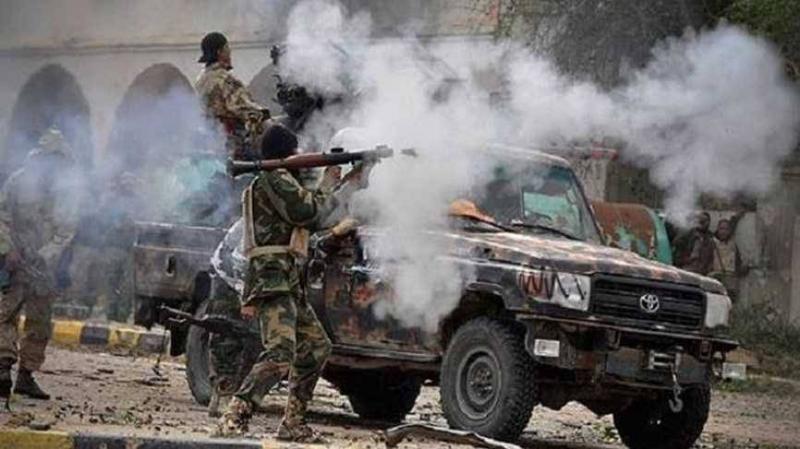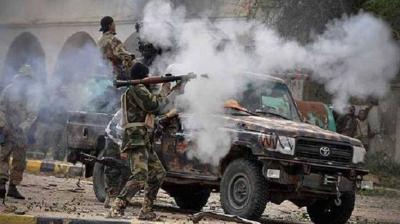Local sources in Libya reported on Saturday that violent clashes erupted near the western gate of Misrata city in western Libya, between the "Joint Forces" supporting the government of Abdulhamid Dbeibeh and the "Mohjub Brigade," which backs the new prime minister appointed by the House of Representatives, Fathi Bashagha. The sources told "Sky News Arabia" that the clashes began at the Dafnia gate and expanded to the coastal road leading to the capital, Tripoli, where the "Joint Forces" attempted to raid the position of the "Mohjub Brigade" at the Zariq intersection to seize vehicles there and arrest the commander, Abdullah Abu Senina.
It was explained that the commander of the Mohjub Brigade, Salem Al-Jahai, assigned Abu Senina and his forces the task of positioning at the sea junction in the Zariq area "to prevent any movement outside the legitimacy of the government led by Bashagha," noting that the "Joint Forces" are supported by foreign mercenaries.
The sources indicated that the "Mohjub Brigade" along with the "Hattin Brigade" had previously managed to oust the "Joint Forces" from parts of Misrata after the latter attempted to attack Bashagha's home and convoy during his first visit to Misrata since his appointment, last Wednesday.
Libyan media figure Mohamed Mohsen stated that "the Joint Forces have become the arm used to intimidate citizens," pointing out that their practices of harassment against civilians and public figures led most armed factions in Misrata to unite against them.
Security arrangements were mentioned regarding Bashagha's meeting with leaders of these groups, including the "Mohjub Brigade, Al-Halbous, Hattin, Brigade 166, and Liberation," to consider security arrangements in the city and to prevent it from slipping into chaos and conflict, but he noted that the other side is responsible for the escalation.
Political analyst Mohamed Amer confirmed that the procrastination of the outgoing government and its insistence on retaining power without surrendering in the capital is the reason for the ongoing tensions and disputes in the country, and these will not end as long as the situation remains as it is. He warned of potential developments leading to "fighting in the streets of Misrata," adding that the situation could slip into violent conflict at any moment, urging Bashagha to capitalize on the recent support around him to end the political division in the country.
Tripoli witnessed hours of terror on Thursday and Friday, as violent confrontations erupted between the "Deterrence Force" and "Tripoli Revolutionaries," resulting in 16 deaths and 34 injuries. The clashes in Tripoli caused widespread public anger among the residents, who demanded the removal of armed formations from the city, according to video footage from several residents of the Dahmani Square area. The United Nations, through its special advisor on Libya, Stephanie Williams, condemned these clashes, affirming that the indiscriminate use of weapons in civilian areas "constitutes a serious violation of international humanitarian law and a crime punishable by law."




